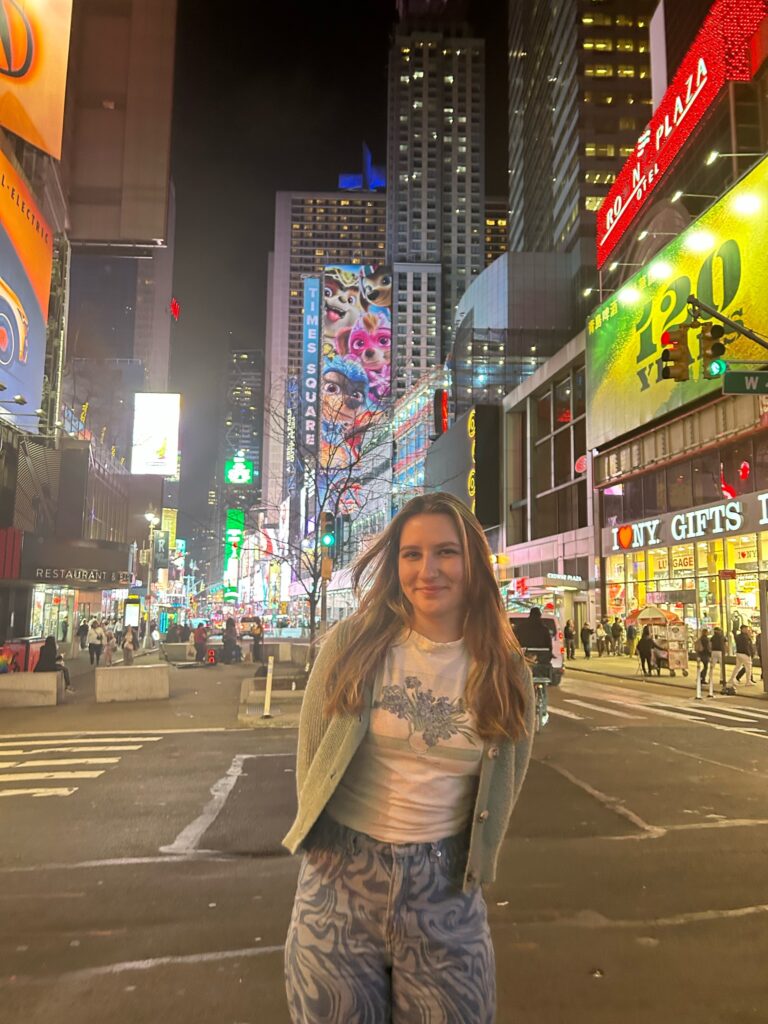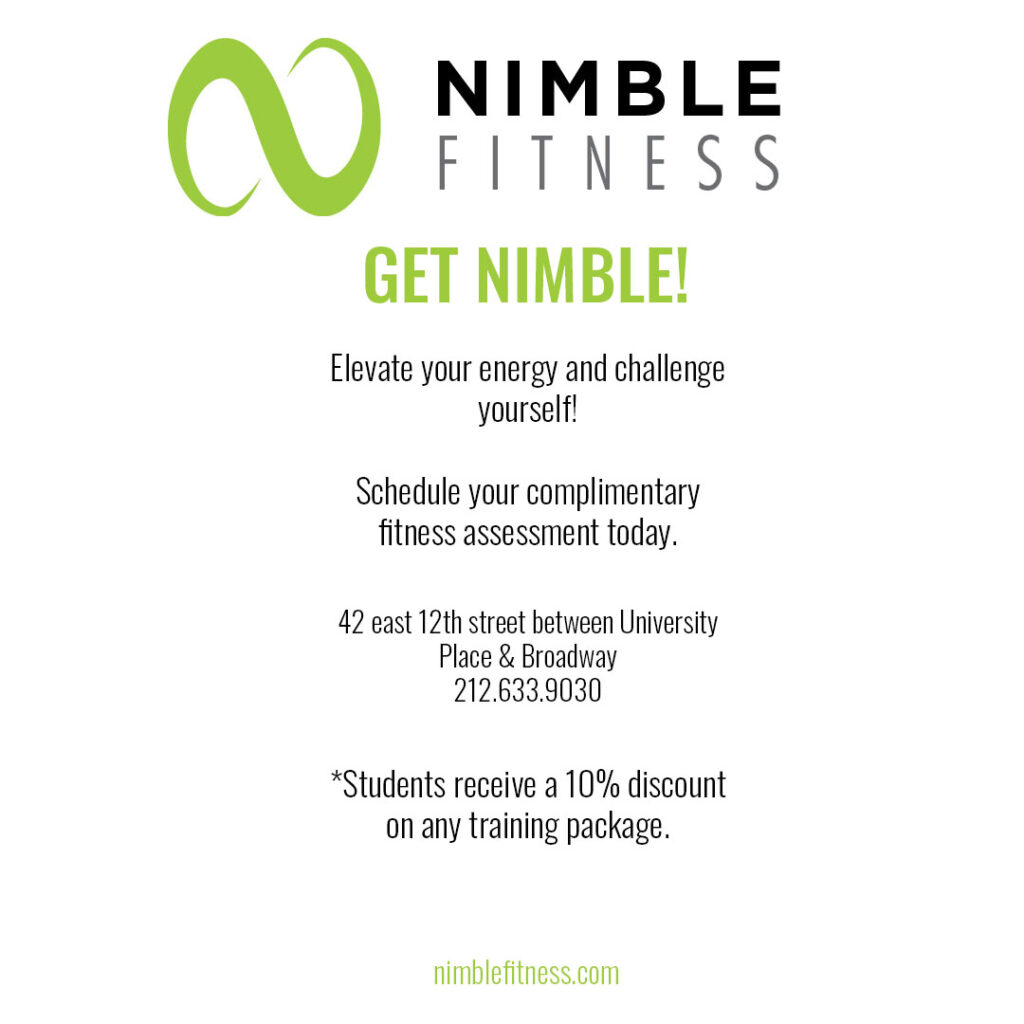
It’s been a pleasure, thus far in Niche-ing New York City, to pretend we live in a perfect world – one in which there’s a talent for everyone, everyone has the time and the resources to practice their talent, and no one ever feels lost, exhausted, or untalented. It’s no secret to any of us that this world will never be perfect, and – now that we’ve explored ways to find and hone our skills – it’s important to think about ways to push through the hard parts. There will be times when work, the news, the world will exhaust you to the point that you can’t be bothered to immerse yourself in your talent, to the point that you can try your hardest at your talent and still feel untalented.
This feeling can have disastrous and lasting effects. When I was nine, my mom enrolled me in an art camp because it was closer – and way cheaper – than the day camps offered by the YMCA. Unknowingly, she helped me discover what would come to be a favorite talent of mine, one that was immune to the mind-numbing effects of being forced to learn a skill in school, and one that I was immediately and inexplicably good at – at least, when I was given the chance to try it. Drawing was all I did from then on, in classes, all over my homework, during every school break. It was fun for me and it was incredibly validating to hear how good I was at it – a combination that, prior, I had never experienced.
As I entered high school, and classwork and extracurriculars began to take up more of my time, I could feel it dwindling. But it was the COVID outbreak in the second semester of my freshman year that killed it. Like everyone, I was incredulous, then, gradually, depressed. I had the most free time I’d ever had in my whole life – and four years’ worth of art supplies accumulated – and I did want to draw. I just couldn’t.
My mind was numb and nothing inspired me. I was exhausted mentally from a year spent sleeping through my Zoom classes, staring out the window, and doomscrolling on TikTok (though I’m not sure that term was around then). Since 2019, I have been able to complete exactly one (1) piece, and none that I’m proud of. But don’t worry, please – it’s not that my art block lasted six whole years, but that the two years of pandemic-induced art block made me forget that I was good at it, that I enjoyed it. It was, in some way, replaced by writing, a new talent that I discovered when we returned to in-person class – and school kept me busy with it. Then, I made the natural decision to major in English and Communications and spend my free time engaged in work and research, and suddenly I had no time to make up for the six years of skill I had lost.
So how am I going to fix it? And how can you fix this feeling of talentlessness when it inevitably happens to you?
The first thing I did was take my art supplies out of the box they’d been in under my bed. Simply having them out, in my periphery and often in my way, ensured that I couldn’t forget about art again. I took a few of my favorites – my charcoal pencils, my mixed-media paper, and my Copic markers – to school my freshman year and proceeded to do nothing with them. But still they remained in my way. Next, I revisited some of my favorite YouTube artists (if you need recs, DrawingWiffWaffles, Jazza, and elliotisacoolguy) and, in watching them, subliminally reminded myself of certain techniques and skills I now struggle with, and that I actually enjoy art.
Here’s the kicker (and you can’t make fun of me for this): last fall, I scrolled past a picture of Jeff Buckley some fan account had posted for his birthday. I did a digital double take, and when I scrolled back up I was hit with a rush of adrenaline I hadn’t felt in years – I was inspired. For the first time in two years, I opened my sketchbook and put pencil to paper. I worked for an hour or so, lighting a candle and listening to his music for some added immersion. When I finished, I stepped back with a heaving chest and a manic smile on my face. It was horrible. It was too bad, even, for me to show you here. It might be the worst thing I’ve ever drawn. But I loved creating it. And I learned from it – the next day I flipped the page and tried again to recreate a different picture. It was also bad, but I loved drawing it just as much.
Your talent is something you can learn to love doing even when you’re bad at it. And it is essential that you do, if you want to avoid the six years of feeling like there’s nothing you are good at. When you can love doing it even if you hate the product, it becomes your best outlet when social media has numbed you, when your nine-to-five has exhausted you, rather than another activity so stress-inducing you’d waste the day bedrotting to avoid it. Never allow yourself to keep it in a box under your bed, to forget the joy it gives you when it feels like nothing will ever make you happy again. If you already have, here’s your reminder to take it back out and put it in your way, give it one last try – it could change your life.

Physical and mental health go hand in hand — take this coupon and your Student ID to get 10% off any fitness package at Nimble Fitness!
By Lauren Male
Lauren is a senior at Pace University majoring in English and Communications, with a minor in Journalism. She is pursuing Pace’s M.S. Publishing program. When she’s not reading, Lauren can be found trying new coffee shops, thrift shopping, and spending all of her money on concert tickets.
For over 25 years, the Campus Clipper has helped college students in New York City—and later in Boston and Philadelphia—save money and succeed in city life. We offer a digital coupon booklet with discounts on food, clothing, and services, plus an Official Student Guidebook with real advice on how to navigate college life in a big city. Our internship program lets students build skills, earn money, and publish their own e-books. Follow us on Instagram and TikTok @CampusClipper, and sign up for our newsletter to get deals straight to your inbox. To access the digital coupons, scan the QR code on our printed card—available in dorms, student centers, and around campus. Open publish panel





















